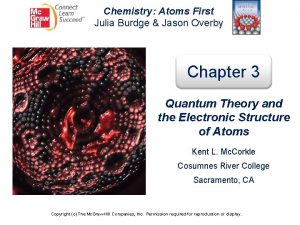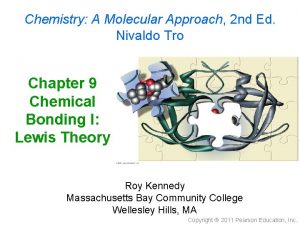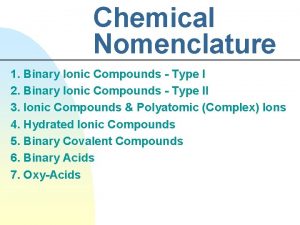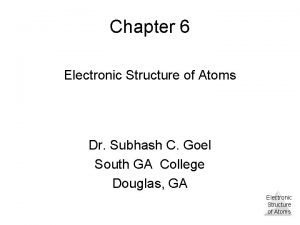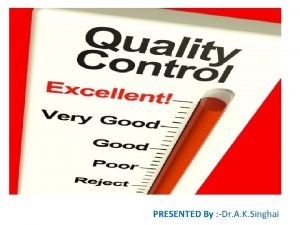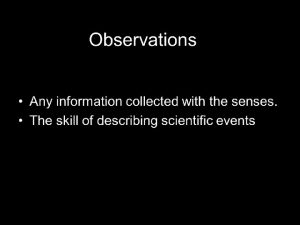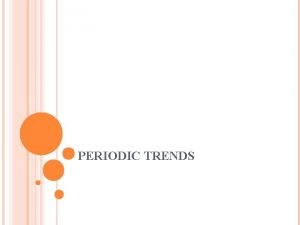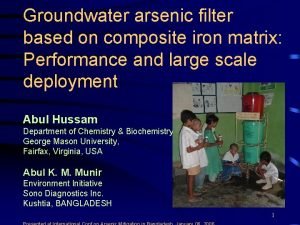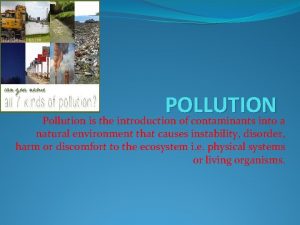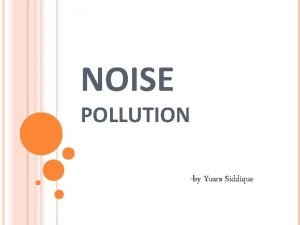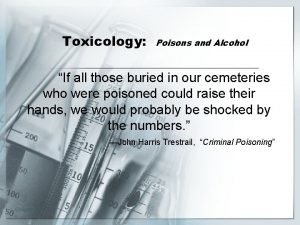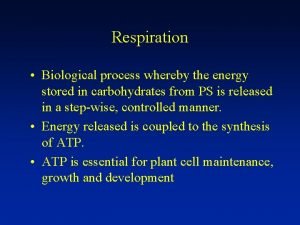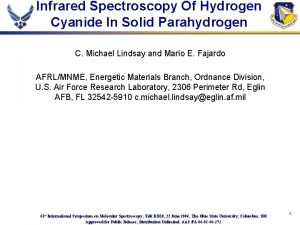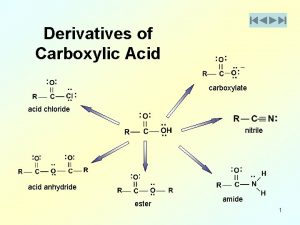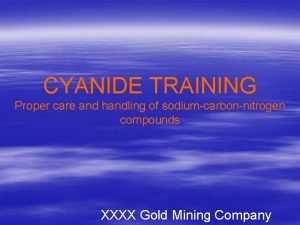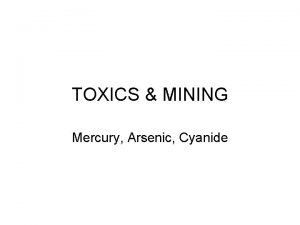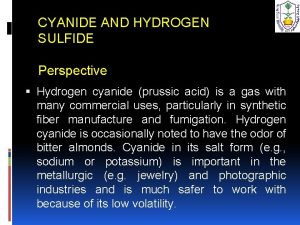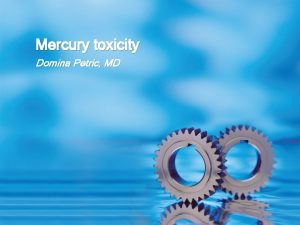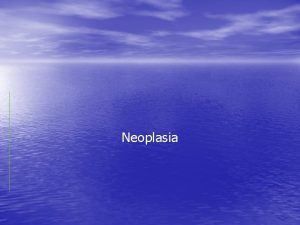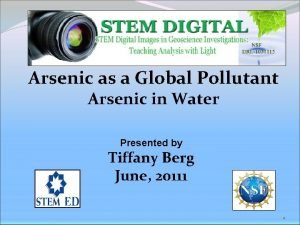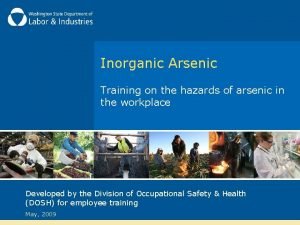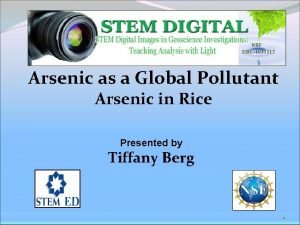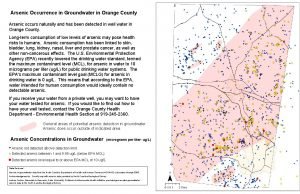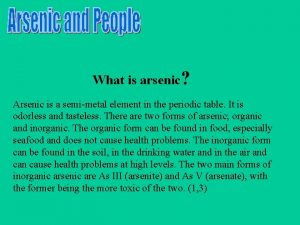Human Health Effects from Cyanide Mercury and Arsenic



















- Slides: 19

Human Health Effects from Cyanide, Mercury and Arsenic Western Mining Action Network September 29, 2007 Amy Crook Centre for Science in Public Participation Victoria, British Columbia, Canada 250 721 -3627 acrook@csp 2. org

How Are People Exposed to Toxic Chemicals? • Industry discharges into air, water and food • Major toxins discharged at mine sites are Mercury, Arsenic, Cyanide, Lead, Zinc, Cadmium, and others • Dispersion of chemicals is global – we all live downstream

Basic Toxicology: Exposure-related Concepts Metals: • Persist in the environment forever • Can bioconcentrate in our food and bodies • Can cause damage with transient exposures

Primary Routes of Exposure

Who is most impacted from toxins? • Those with highest exposure-workers and their families • Those who live closest to the source • Those who fish/hunt from contaminated areas • Those with the most vulnerability-pregnant women, infants, children, sick and elderly • Even transient exposures can have significant toxic impact

Child Health Exposures • Prenatal -transplacental -developmental windows • Postnatal – pound per pound children eat, drink and breath far more than adults – prolonged gastric emptying – increased metabolic rate – increased time indoors and on floors – breast milk (still best to breastfeed, but breast milk now contains many contaminants)

Why don’t we know more about toxic impacts? • Good data hard to get and large scale epidemiology studies are rare • Can’t dose people with toxins and look at the response • Data comes from accidents/spills- not a controlled lab setting w/good study design • There is a long latency window between exposure and affect

Why don’t we know more about toxic impacts? • People are exposed to a mixture of toxins, not one at a time. • Toxicity tests are designed to measure the effects of one toxin at a time, don’t reflect reality. • Interactive effects of toxins are important, but few studies look at chemical mixtures. • Exposure rates are hard to measure in uncontrolled situations. • Precautionary approach needed in estimating toxicity and allowing the discharge of toxic compounds.

An Overview of Mercury Combusti on Dry Deposition Farmin g Runof f Pesticid es Fertilizer s Industry & Incinerators Waste. Water Wet Depositio n Particulate s & Vapor Volcanoes Landfills Releases Volatilizatio n. Methylati Rain & Streams to Groundwater to Streams, lakes, vegetation, soil on Hg to Hg. CH 3 Groundwater Flow Sedimentati on Bioaccumulation in Fish

Mercury Effects of Higher Dose Prenatal Exposure • • Mental retardation Seizures Cerebral palsy Disturbances of vision, hearing, sensation Abnormal gait Abnormal speech Disturbances of swallowing and sucking Abnormal reflexes

Mercury: Declining Threshold of Harm (micrograms/kg/day Hg) DAILY INTAKE 100 Level associated with harmful effect Regulatory standard (maximum safe exposure or high end exposure from allowed fish contamination) 10 1 FDA WHO ATSDR 0. 1 EPA 0. 01 1970 1980 1990 YEAR 2000

Mercury Exposures Advised Exposure Limit • EPA Reference Dose (“safe” upper limit) – 0. 1 microgram/kilogram/day • Equivalent consumption limit – Women: 1. 5 oz. swordfish or 7 oz. tuna/week – Child: 1 oz. tuna per 20 lb. body weight/week

Environmental Concerns of Mercury • Methylmercury bioaccumulation in fish • Elevated concentrations build up in river reservoirs above dams • Previous mercury mining has left a legacy of tremendous health impacts. Tl'azt'en First Nation impacts from old Teck Cominco mine at Lake Pinchi. • Large sources of mercury come from roasters at gold mines and from active cyanide heap leaches.

Are the current standards protective? • Thresholds of harm for As, Hg & Cn • Is policy keeping up with the science? • Compounded effects from multiple exposures and toxic mixtures • Chemicals we don’t even know yet • Cumulative impacts from other factors: nutrition, genetics, social, cultural, economic

How to assess if your community is at risk • Attend the workshop by Sue Moodie, Lisa Sumi and Catherine Coumans Health Assessment for Mining Affected Communities Workshop, Sunday afternoon.

Questions to ask mining companies • How much dust will be generated? Where will it go? What’s in it? Will it affect harvest areas, play areas, yards, haul roads, etc? • Where will the waste water be discharged? What’s in it? Will it affect fish, wildlife, recreation and sacred areas? • Where are the transportation routes for hauling ore, hazardous materials, and fuels? Are they close to homes, communities? Are the current roads capable of handling the extra traffic and weight? What are the plans to upgrade and maintain the road? Who pays for that? • How will ore and hazardous materials spills be handled? Are the response plans and notification procedures adequate? Who pays for the clean up?

References: Toxic impacts: • Sandra Steingraber. 2001. Having Faith- An Ecologist’s Journey to Motherhood. Perseus Publishing. Cambridge, Massachusetts. • Daniel Peplow, Robert Edmonds. The effects of mine waste contamination at multiple levels of biological organization. Elsevier Ecological Engineering 24 (2005) 101– 119. Mercury: • Leonardo Trasande, Philip J. Landrigan, and Clyde Schechter. Public Health and Economic Consequences of Methyl Mercury Toxicity to the Developing Brain. Environmental Health Perspectives Volume 113, Number 5, May 2005. http: //www. mineralpolicy. org/mercury. cfm • LA Times, March 17, 2005. Possible Mercury, Autism Connection Found in Study. Thomas H. Maugh II Texas researchers have found a possible link between autism and mercury in the air and water. • Reno Gazette-jounal, April 14, 2007. Researchers at UNR to study mining waste link to mercury. Jeff De. Long.

References • Chan HM, Receveur. Environmental Pollution. 2000 Oct; 110(1): 1 -2. Mercury in the traditional diet of indigenous peoples in Canada. Centre for Indigenous Peoples' Nutrition and Environment, Mc. Gill University Quebec, Canada. • Hansen JC, Gilman AP. Int J Circumpolar Health. 2005 Apr; 64(2): 121 -36. Exposure of Arctic populations to methylmercury from consumption of marine food: an updated risk-benefit assessment. Centre for Arctic Environmental Medicine (CAM), University of Aarhus, Denmark. • Stephen C. Jewett, Lawrence K. Duffy. Mercury in fishes of Alaska, with emphasis on subsistence species. Science Direct, STOTEN 10138; No of Pages 25. www. sciencedirect. com • Environmental Protection Agency. Mercury Study Report to Congress: An Assessment of Exposure to Mercury in the United States. Vol IV, 1997. http: //www. epa. gov/ttnuatw 1/112 nmerc/volume 4. pdf • Environmental Protection Agency. Mercury Update: Impact on Fish Advisories. EPA-823 -F-99 -016 September 1999. http: //www. epa. gov/ostwater/fish/mercury. html

References • Greg Jones and Glenn Miller. October, 2005 Mercury and Modern Gold Mining in Nevada. University of Nevada, Reno, NV • Great Basin Mine Watch, Idaho Conservation League and Earthworks. August 2006. Three Nevada Gold Mines Grossly Under. Report Mercury Air Emissions. . Cyanide: • Agency for Toxic Substances and Disease Registry (ATSDR). 2006. Toxicological Profile for Cyanide. Atlanta, GA: U. S. Department of Health and Human Services, Public Health Service.
 Sophomoric humor meaning
Sophomoric humor meaning Lewis dot structure for na
Lewis dot structure for na Electron configuration rules
Electron configuration rules Lewis structure for arsenic
Lewis structure for arsenic Type i binary ionic compounds
Type i binary ionic compounds Ground state of arsenic
Ground state of arsenic Water attack test
Water attack test Valentin ross forensic science
Valentin ross forensic science Formula for arsenic pentabromide
Formula for arsenic pentabromide Atomic radius summary
Atomic radius summary Shorthand electron configuration for arsenic
Shorthand electron configuration for arsenic Bismuth nitrite
Bismuth nitrite Sono arsenic filter
Sono arsenic filter Land pollution effects on human health
Land pollution effects on human health Yusra siddique
Yusra siddique Sodium cyanide ld50
Sodium cyanide ld50 Cyanide-resistant respiration slideshare
Cyanide-resistant respiration slideshare Cyanide ir
Cyanide ir Hydrolysis of cyanide
Hydrolysis of cyanide Cyanide ppe
Cyanide ppe


